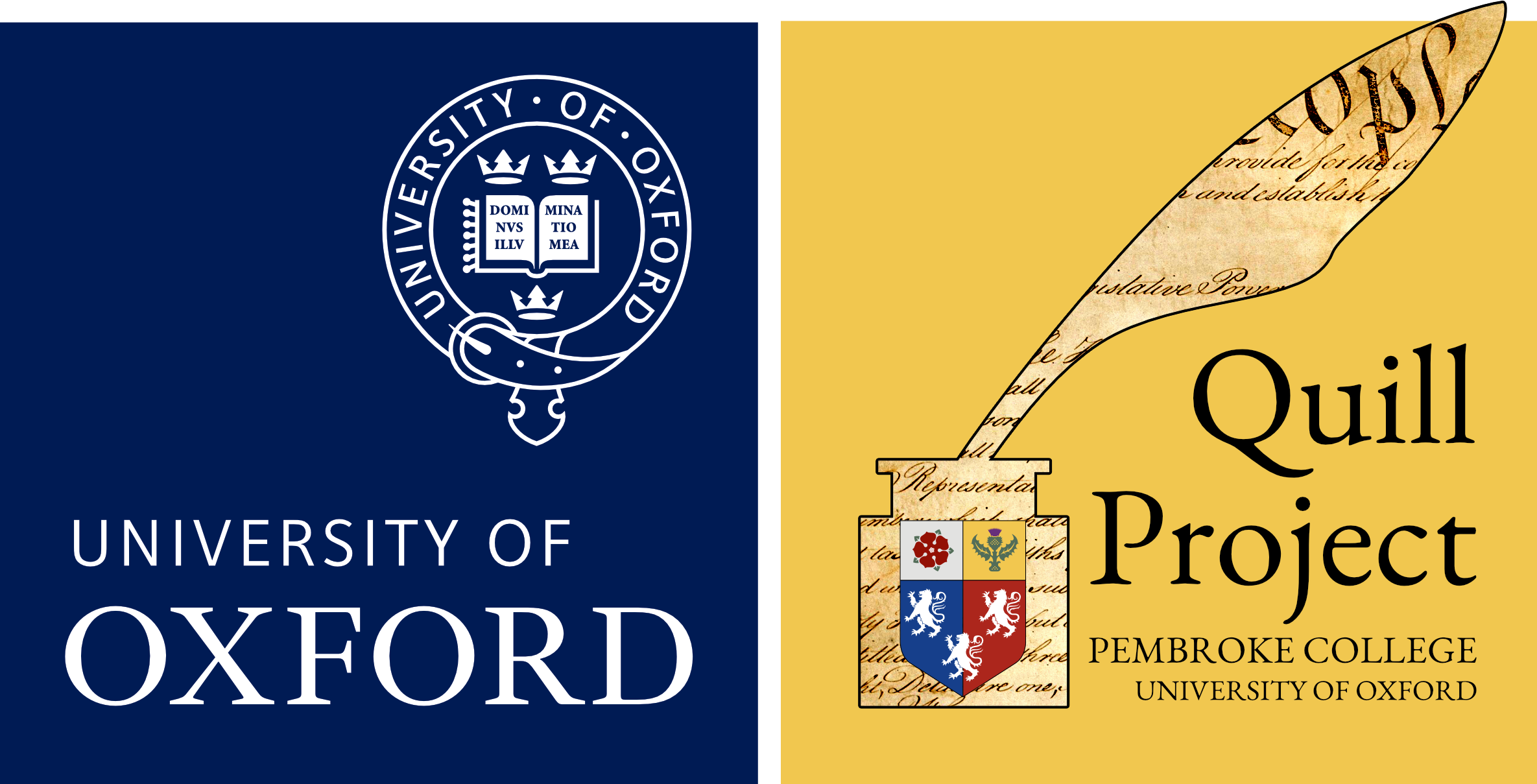A brief guide > The Quill approach > Meet the team > Brookes/Mayhew > The NI Forum
The Brookes/Mayhew Talks
Peter Brooke (left) and Patrick Mayhew (right), both pictured in the early 1990s
The Brooke-Mayhew talks were selected by Quill as a proof-of-concept model due to the ready availability of the necessary source materials and the similarity in structure to the later talks in the run-up to the Good Friday Agreement. This sub-project will be published in April 2023.
On 26 March 1991, the Northern Ireland Secretary Peter Brooke informed the House of Commons that ‘a basis for formal political talks now exists’. His observation that the endeavour was ‘an ambitious one’ was, if anything, an understatement.
Any early hope that the 1985 Anglo-Irish Agreement would lead to the restoration and reformation of devolution with Northern Ireland had long since dissipated. While the Agreement had been warmly welcomed by the Nationalist community, in particular the SDLP, it had engendered a sense of betrayal among Unionist leaders who had cut off formal communication with London for several years. Only after three years of tentative ‘talks about talks’, were the parties ready to attempt to negotiate ‘a new, more broadly based agreement’ to replace the Anglo-Irish Agreement. As Brooke had earlier outlined, arrangements for the restoration of devolved powers needed to be found which would ‘give appropriate weight to majority and minority aspirations and views’, while addressing the issue of how ‘the legitimate interest of the Irish Government in matters within Northern Ireland’, could be recognized ‘without dilution of UK sovereignty or the status of Northern Ireland as part of the United Kingdom’ (Peter Brooke, speech in Bangor, 9 January 1990).
Initially talks were intended to take place during a ten-week suspension of the Anglo-Irish Intergovernmental Conference from April-July 1991, but they later resumed and continued, with interruptions, until November 1992. After the British General election in 1992, Patrick Mayhew succeeded Brooke as Secretary of State for Northern Ireland and historians generally refer to this series of talks as the ‘Brookes/Mayhew Talks’.
In setting out the basis for the negotiations, Brooke divided the agenda into three ‘Strands’, corresponding to the three main sets of relationships:
Strand 1 - Relationships within Northern Ireland, particularly between the Northern Irish political parties
Strand 2 - ‘North-South’ relations ‘among the people of the island of Ireland’
Strand 3 - ‘East-West’ relations, between the British and Irish governments
Predictably, much of the negotiation centred on questions of process and rules of procedure rather than on these more substantive questions. The minutes record lengthy discussions and disagreements about where and when meetings should take place, who should be present, and so on. While the talks ultimately collapsed without agreement, the fact that negotiations had taken place at all and over all three strands was significant and we hope that the Quill model will help us to better evaluate the impact this early attempt at agreement had on the later talks process and to understand the contribution of those who participated. Our hypothesis is that agreeing process is in itself part of the means of building trust and enabling dialogue.
A screenshot from the Quill platform, using the negotiations on Monday 9 May 1992


